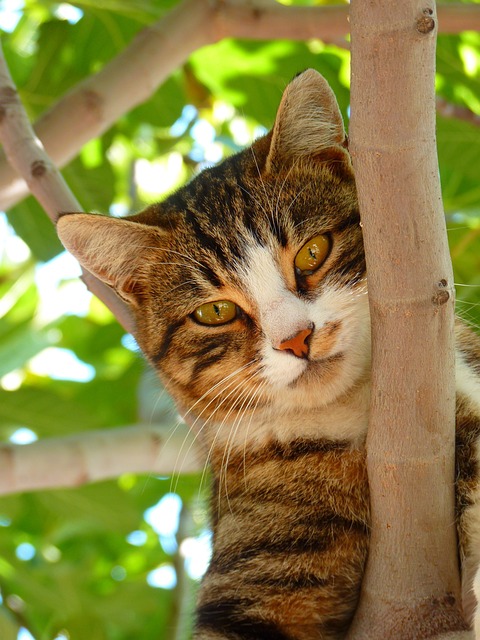Welcoming a kitten into your home is an exciting time, but it also comes with responsibilities, including the question of what to feed kittens to provide the right nutrition for their growth and development. In this comprehensive guide, we’ll explore everything you need to know about what to feed kittens and how to ensure they receive the best possible start in life.
Understanding Kitten Nutrition
Kittens have unique nutritional needs compared to adult cats. They require a diet rich in protein, fat, carbohydrates, vitamins, and minerals to support their rapid growth and development. Ensuring they receive the right balance of nutrients is crucial for their overall health and well-being.
Protein is particularly important for kittens as it aids in muscle development and overall growth. Look for kitten foods that list a high-quality source of protein, such as chicken, turkey, or fish, as the first ingredient.
Fat is another essential nutrient for kittens, providing them with energy and aiding in the absorption of fat-soluble vitamins. However, it’s important to ensure that the fat content in their diet is not excessive, as this can lead to obesity.
Carbohydrates are a source of energy for kittens, but they should be provided in moderation. Too many carbohydrates can lead to weight gain and other health issues. Look for kitten foods that contain easily digestible carbohydrates such as rice or sweet potatoes.
Vitamins and minerals are crucial for kittens’ overall health and well-being. These nutrients play a role in everything from bone development to immune function. Look for kitten foods that are fortified with essential vitamins and minerals to ensure your kitten is getting everything they need to thrive.
Choosing the Right Kitten Food
When it comes to choosing what to feed kittens, there are several options available, including dry kibble, wet food, and semi-moist food. Each type has its advantages and drawbacks, so it’s essential to choose the best option based on your kitten’s preferences, dietary needs, and lifestyle factors.
Dry kibble is convenient and cost-effective, making it a popular choice for many kitten owners. It also helps to promote dental health by reducing plaque and tartar buildup. However, some kittens may prefer wet food due to its higher moisture content and more appealing texture.
Wet food is highly palatable and can be beneficial for kittens who struggle to stay hydrated or have dental issues. It’s also a good option for kittens who are picky eaters or have a reduced sense of smell, as the strong aroma of wet food can entice them to eat.
Semi-moist food is another option to consider, as it combines the convenience of dry kibble with the palatability of wet food. However, it’s essential to check the ingredients list carefully, as some semi-moist foods may contain added sugars and artificial preservatives.
Feeding Schedule for Kittens
Establishing a consistent feeding schedule is important for kittens. Depending on their age and developmental stage, kittens may require frequent small meals throughout the day. Portion control is key to preventing overfeeding and ensuring they maintain a healthy weight as they grow.
For very young kittens, such as those under four weeks of age, frequent feedings are essential to meet their high energy requirements. Offer them small amounts of milk or formula every two to three hours, gradually increasing the time between feedings as they grow older.
As kittens grow and begin to transition to solid food, you can gradually reduce the number of feedings per day. Most kittens can transition to a feeding schedule of three to four meals per day by the time they are eight to ten weeks old.
Introducing Solid Food
As kittens grow, they’ll gradually transition from milk or formula to solid food. This process, known as weaning, typically begins around four weeks of age and should be done gradually to prevent digestive upset. Encouraging kittens to eat solid food and providing plenty of water during this transition is essential for their nutritional needs.
Start by offering small amounts of wet kitten food mixed with milk or formula to make it more palatable. As they become more accustomed to the taste and texture of solid food, you can gradually increase the amount of food offered and decrease the amount of milk or formula.
Once kittens are fully weaned, usually by eight weeks of age, you can begin to transition them to a diet of exclusively solid food. Offer a variety of kitten foods to help them develop a taste for different flavors and textures.
Homemade vs. Commercial Kitten Food
While homemade food may seem like a tempting option, it’s essential to ensure it meets all of your kitten’s nutritional requirements. Commercial kitten food is specially formulated to provide kittens with the essential nutrients they need for healthy growth and development. Always consult with your veterinarian before making any significant dietary changes for your kitten.
If you do choose to feed your kitten homemade food, be sure to work with a veterinarian or animal nutritionist to develop a balanced recipe that meets all of their nutritional needs. Homemade diets should include a variety of protein sources, carbohydrates, and essential vitamins and minerals to ensure your kitten receives everything they need to thrive.
Special Considerations and Dietary Restrictions
Some kittens may have specific health conditions or dietary restrictions that require special consideration. Consulting with a veterinarian or animal nutritionist can help you choose what to feed kittens and develop a personalized plan tailored to your kitten’s unique needs.
For example, kittens with food allergies or sensitivities may require a hypoallergenic diet free from common allergens such as chicken, beef, or grains. Similarly, kittens with certain medical conditions, such as kidney disease or diabetes, may require a specialized diet to manage their condition effectively.
Conclusion
Feeding kittens is a responsibility that comes with immense rewards. By understanding their nutritional needs and providing them with the right balance of nutrients, you can ensure they grow into healthy, happy adult cats. Remember, your veterinarian is always there to provide guidance and support along the way.
As you embark on this journey with your new kitten, take the time to learn about their individual preferences and dietary needs. With proper nutrition and care, you can give your kitten the best possible start in life and enjoy many years of companionship and joy together.






